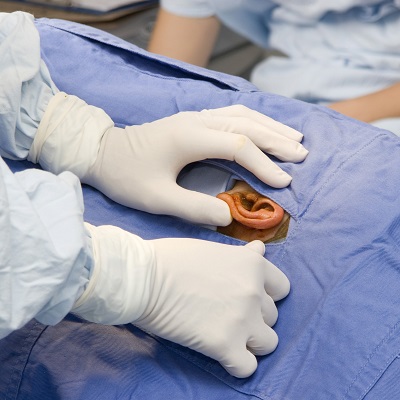
Fixing a fractured or perforated eardrum is often accomplished by eardrum surgery, tympanoplasty, or myringoplasty. The tiny bones in the middle ear receive sound waves via a thin membrane known as the eardrum. The hearing consists in significant part on this level. Should your eardrum be damaged or have holes in it, hearing loss, diseases, and other issues might follow. Those considering eardrum surgery often have questions, including “ Can You Hear After Eardrum Surgery in Islamabad?“
Let me discuss what eardrum surgery is, how it influences hearing, and what to expect throughout your recovery.
What is Eardrum Surgery?
Surgery on the eardrum can correct a hole or tear there. The hearing system is the particular part of the eardrum. Hence, sometimes known as the tympanic membrane. Moreover, it divides the outside ear from the middle ear. Furthermore, an illness, an accident, harsh noises, or even ear canal placement can damage it. So, if it happens, you can lose your hearing, have frequent infections, and experience agony.
You can correct your eardrum using several surgical procedures. Tympanoplasty is the technique of covering the eardrum hole with tissue to restore its entire body. Sometimes surgeons combine oculoplastic, which restores the tiny bones in the middle ear, with tympanoplasty to enhance hearing. However, Can You Hear After Eardrum Surgery in Islamabad?
Can You Hear After Eardrum Surgery in Islamabad?
Following therapy on the eardrum, most of the time, hearing improves significantly. The surgery’s primary objective is to correct the anatomy of the eardrum such that it can more successfully transmit sound waves to the inner ear. However, the degree of hearing gain differs for several factors, including:
- The extent of the damage to the eardrum: Little eardrum holes are more accessible to repair, and those with less damage typically have more full hearing return.
- The presence of middle ear damage: If the middle ear’s ossicles or bones break, you may require additional treatment to repair or replace them, influencing the outcome.
- Pre-existing conditions: Long-term ear infections or disorders like otosclerosis help to slow down hearing loss following surgery.
Hearing Recovery Timeline After Eardrum Surgery:
Following surgery on the eardrum, hearing might not improve immediately. The ear heals and becomes acclimated to the new shape over time. Improvement usually takes the following standard time frame:
- Patients often experience difficulty hearing due to swelling and packing placed in the ear.
- Side effects include bleeding, fullness, and minor discomfort.
- In the initial weeks, changes in hearing are seen as swelling subsides. You can remove packing material gradually.
- Most patients experience significant hearing changes three to six weeks post-surgery.
- The size of the hole and the degree of healing affect the overall healing process.
- After three months, most patients can hear almost normally again.
- A hearing test can evaluate the success of the ENT surgery.
What to Expect After Eardrum Surgery?
Following surgery on your eardrum, here are some noteworthy things to look forward to:
- Your doctor will provide particular instructions on how to treat your ears following surgery. It is crucial to avoid water in your ears, blowing your nose too forcefully, or engaging in any activity that can impede your recovery.
- Some people may temporarily lose their hearing just following surgery. Usually, this results from some slight ear edema or the packaging material.
- Follow-up appointments: Maintaining all your follow-up appointments helps you monitor your recovery and ensure that issues like infections don’t arise.
Factors Influencing Healing of Hearing:
Although eardrum surgery typically aims to restore hearing, the following might affect the ultimate outcomes:
- After surgery, infections can alter the healing process and affect the hearing quality. Maintaining dry ears and following your doctor’s advice will help reduce your chance of infection.
- If the little bones in the middle ear break, you can want additional surgery, thereby altering the course of improvement in your hearing.
- Sometimes, the eardrum fixing patch employed may not attach correctly, leading to further holes and the need for another surgery.
Final Thoughts:
The resounding “yes” will help determine whether your eardrum is still sensitive following surgery. After surgery, hearing may vary momentarily as the ear may be enlarged and contain packing material; but it should get much better as it recovers. Surgery on the eardrum can help restore hearing, prevent disorders from resurfacing, and enhance general ear health.
Consult with the expert surgeon at Dynamic Clinic PK for every type of safe and effective ear and eardrum surgery.












